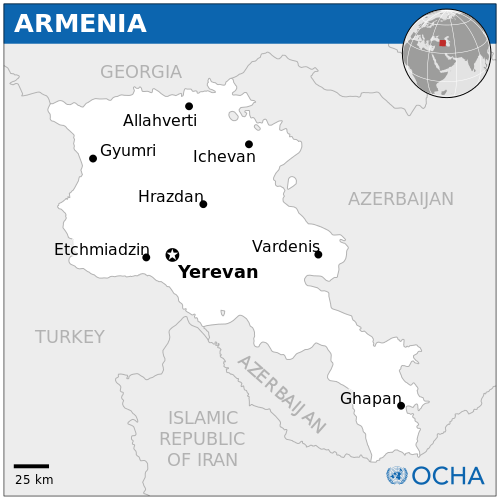The Most Unlikely Hacker
Cybersecurity is a 13-letter word which keeps popping up as technology advances. As more and more of our personal information becomes accessible remotely, so grows (in least in theory) our collective attention to keeping that data safe from malfeasors and ensuring that we have appropriate, real-time access to our own data at the same time. Security may be a fool’s errand, though — in the past year or so, many multinational institutions have found their servers compromised, exposing the data of millions of people. On top of that, there are often coordinated efforts to take down the digital presence of entire companies or agencies. Everything appears to be vulnerable to those who have the right tools and skills.
And sometimes, those tools are incredibly commonplace and the skills are rather pedestrian. For example, in one notable case, a profiteering hacker in the nation of Georgia was able to suspend Internet service to about 90% of neighboring Armenia for 12 hours.

Armenia is home to about three million people, of which 2.8 million have phones and 1.4 million have access to the Internet. Connectivity isn’t great, though; many still use dial-up lines as broadband penetration is lacking. But that’s a problem within Armenia’s borders — the infrastructure exists to bring some meaningful level of broadband access into the nation, in the form of fiber optic lines originating across the Black Sea and passing through Georgia. That does, however, leave Armenia strangely vulnerable, which is how this 12 hours of downtime happened. Georgia, like many Eastern European countries, isn’t quite yet at the standard of living for the rest of the continent. As of 2006, 34% of the nation lived below the poverty line. (That is depressingly high, but it’s also a sign of improvement — five years prior, that number was at 54%.) Many find creative and often illegal ways to make ends meet.
The scofflaw behind the Armenian Internet collapse was a woman named Aishtan Shakarian. In March of 2011, Ms. Shakarian was living outside of the Georgian capital of Tbilisi looking for ways to make a few bucks. Like plenty of others before her, she took out her tools and started digging. But unlike most cybercriminals, her tool of choice didn’t involve anything electronic. It was a spade — a gardening tool — and she was digging in the most literal sense of the word. Shakarian, then age 75, was hoping to find some copper she could illegally exhume and sell as scrap. As the Wall Street Journal explained, “scrap metal is a staple export for Georgia and scavengers have been known to steal the lids from communications wells, and to strip electricity lines in the search for metal they can sell to exporters.”
Shakarian didn’t find copper, though. Her spade accidentally found that buried fiber optic line running into Armenia and broke it, shutting down the vast majority of Armenia’s access to the outside Internet. That set off all sorts of alerts and authorities arrived quickly, certainly before Ms. Shakarian realized what she had done. She immediately admitted her guilt. (Comically, the Guardian pointed out that Ms. Shakarian “said she had no accomplices,” as if she were some sort of criminal mastermind hellbent on wiping out Armenia’s data industry.) She was shortly thereafter dubbed the “spade hacker” by those who, a half-day later, could log back in and figure out what had happened. If they believed it, that is.
While her crime could have earned her a fine, probation, and even a year in jail, NPR reported that she was released from custody entirely due to her age.
Bonus Fact: As of 2012, chess is part of the mandatory curriculum in Armenian schools. (That link may auto-play a video, sorry.)
From the Archives: The Last Exit on the Information Superhighway: The part of the United States where you can’t get online.
Related: Bare copper wire, in case you need some but don’t want to buy the black market, Internet-killing stuff.
